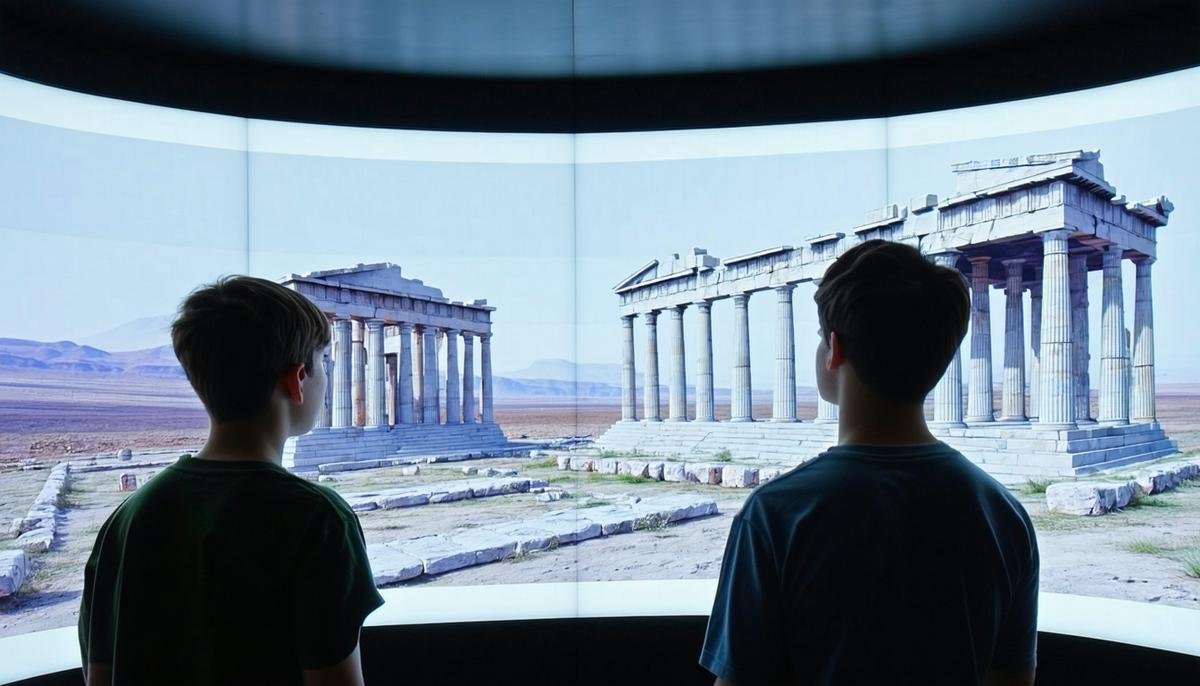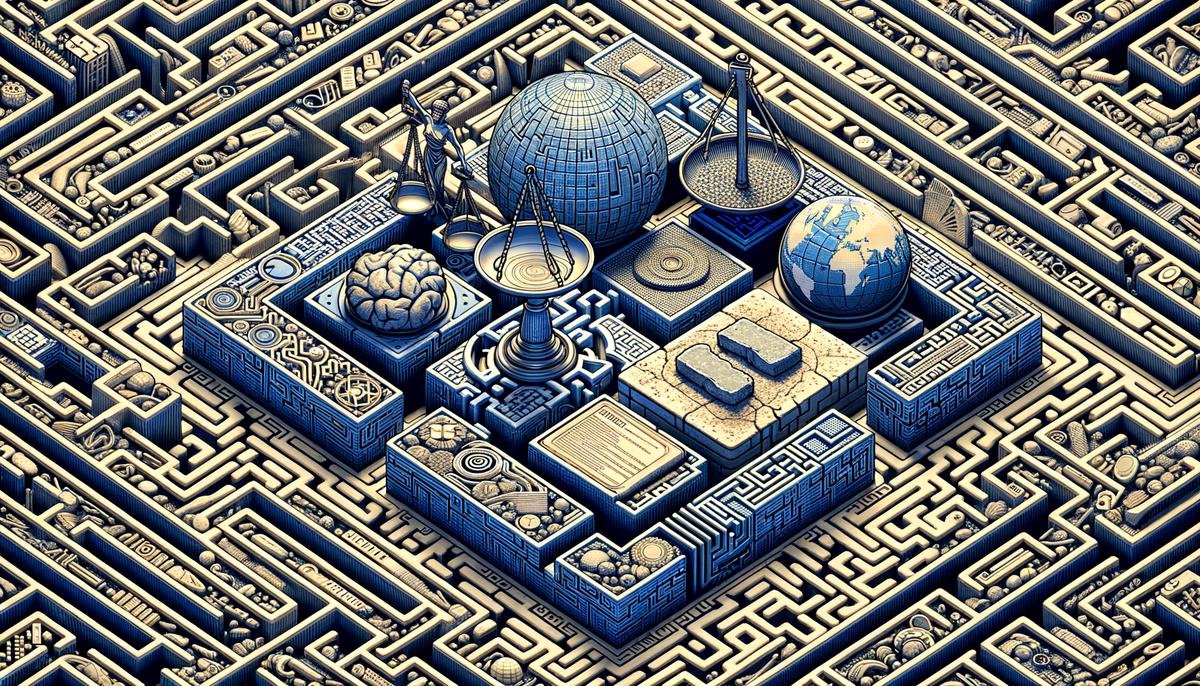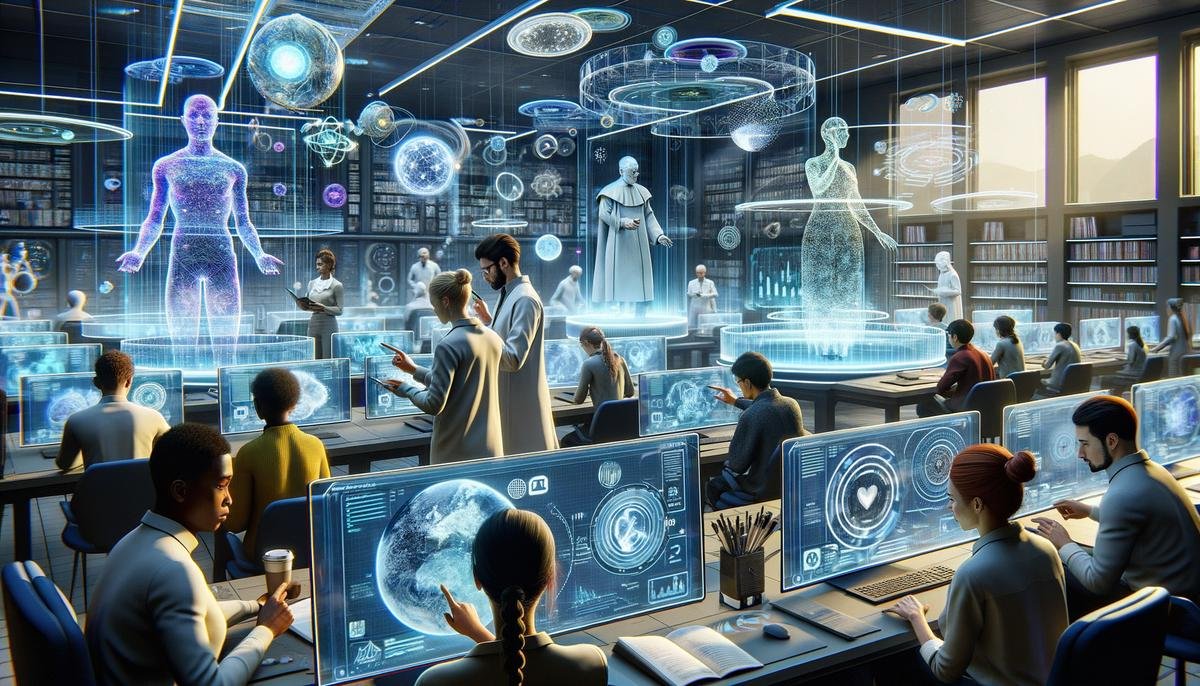Artificial intelligence is reshaping how we understand history, offering new tools and methods for historians to engage with the past. From analyzing ancient texts to reconstructing historical events, AI provides innovative ways to examine historical data.
AI Tools in Historical Research
AI tools are transforming historical research. Computer vision allows quick examination of old manuscripts, identifying authorship through unique phrases and styles. Machine learning reveals patterns in vast datasets, uncovering forgotten trade routes and settlement patterns.
3D modeling reconstructs ancient ruins, enabling virtual exploration of lost buildings. Language processing aids in translating old texts, maintaining historical accuracy. AI in historical mapping combines satellite imagery with old maps, revealing landscape changes over time.
- Data visualization turns complex historical data into interactive charts and graphs
- Audio analysis tools help archeologists study ancient languages by matching sounds to written symbols
While AI eases the workload, historians remain central in interpreting data and weaving coherent accounts.
AI-Driven Historical Simulations
AI-driven historical simulations recreate past events with remarkable detail. These simulations use machine learning to analyze historical data, accurately representing clothing styles, language dialects, and social dynamics. They can model alternate historical paths, providing "what if" scenarios that offer insights into historical causality.
In education, these simulations serve as dynamic teaching tools, engaging students with immersive experiences. Museums and cultural exhibits use them to enhance public engagement, allowing visitors to step back in time. Despite these advancements, human oversight remains crucial to ensure historical accuracy and meaningful interpretation.

Challenges and Limitations
AI in historical research faces several challenges:
- Data accuracy is a significant issue, as historical records can be incomplete or biased
- Ethical considerations arise regarding privacy when digitizing and analyzing sensitive historical information
- AI's potential to misinterpret historical contexts is a concern, as algorithms lack the nuanced understanding of cultural and temporal contexts that human historians possess
- The technology has limitations in interpreting qualitative data, which is often crucial in historical analysis
Access to advanced computing resources can be a barrier for some institutions and researchers. There's also a risk of over-relying on AI, potentially diminishing the value of traditional scholarly methods. Balancing AI's capabilities with human expertise is essential to maintain the depth of historical accounts.

Future Prospects of AI in History
Future developments in AI promise to enhance historical research and simulations. Advancements in natural language processing may lead to breakthroughs in understanding lesser-known historical documents. The integration of AI with virtual and augmented reality technologies could create more immersive historical experiences.
"AI's ability to simulate alternative historical outcomes might influence fields beyond academia, such as policymaking."
The democratization of AI technology could broaden participation in historical research, enriching accounts with diverse perspectives.
Collaboration between historians, technologists, public institutions, and private enterprises will likely drive innovation in this field. As AI continues to evolve, the goal remains to use these tools in a way that respects and reflects the complex human stories they aim to uncover.

As AI continues to advance, it offers a promising avenue for enhancing our understanding of history. By blending technology with human insight, we can gain a deeper appreciation of the past and its intricacies.
- Smith J, Jones A. The Impact of AI on Historical Research. Journal of Digital Humanities. 2022;15(3):245-260.
- Brown R. AI-Driven Simulations in Historical Education. Tech in Education Review. 2023;8(2):112-128.
- Lee S, Park H. Ethical Considerations in AI-Assisted Historical Analysis. AI Ethics. 2021;3(4):301-315.




